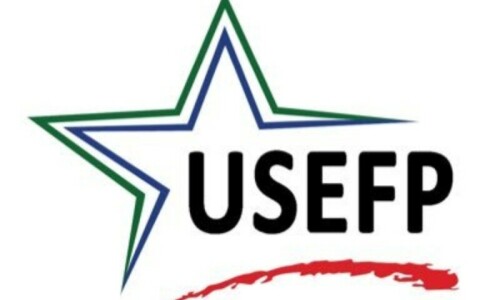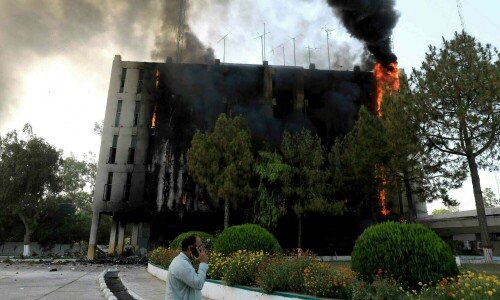SEOUL: The United States on Monday said countries trading with North Korea were aiding its “dangerous nuclear intentions” as the United Nations Security Council mulled tough new sanctions and the isolated regime showed signs of planning more missile tests.
South Korea said it was talking to Washington about deploying aircraft carriers and strategic bombers to the Korean peninsula following the North’s sixth and most powerful nuclear test on Sunday.
At a Security Council meeting, US Ambassador Nikki Haley said North Korea’s Kim Jong Un was “begging for war” and urged the 15-member group to adopt the strongest possible measures to deter him.
“War is never something the United States wants. We don’t want it now. But our country’s patience is not unlimited. We will defend our allies and our territory,” Ms Haley said.
Ms Haley said the United States will circulate a new Security Council resolution on North Korea this week and wants a vote on it next Monday.
Meanwhile, China, a top trading partner with North Korea, and Russia called for a peaceful resolution to the crisis.
“China will never allow chaos and war on the (Korean) Peninsula,” said Liu Jieyi, the Chinese ambassador to the United Nations.
While Russia said peace in the region was in jeopardy. “A comprehensive settlement to the nuclear and other issues plaguing the Korean peninsula can be arrived at solely through political diplomatic channels,” Russia’s UN Ambassador Vassily Nebenzia said.
Military exercises
South Korea’s air force and army conducted exercises involving long-range air-to-surface and ballistic missiles on Monday following the North’s nuclear test on Sunday, its joint chiefs of staff said in a statement.
In addition to the drill, South Korea will cooperate with the United States and seek to deploy “strategic assets like aircraft carriers and strategic bombers”, Jang Kyoung-soo, acting deputy minister of national defence policy, told a parliament hearing.
South Korea’s defence ministry also said it would deploy the four remaining launchers of a new US missile defence system after the completion of an environmental assessment by the government.
Diplomats have said the Security Council could now consider banning North Korean textile exports and its national airline, stop supplies of oil to the government and military, and prevent North Koreans from working abroad and add top officials to a blacklist to subject them to an asset freeze and travel ban.
When asked about President Trump’s threat to punish countries that trade with North Korea, Chinese Foreign Ministry spokesman Geng Shuang said China has dedicated itself to resolving the North Korean issue via talks, and China’s efforts had been recognised.
“What we absolutely cannot accept is that on the one hand (we are) making arduous efforts to peacefully resolve the North Korean nuclear issue, and on the other hand (our) interests are being sanctioned or harmed. This is both not objective and not fair,” he told a regular briefing.
On possible new UN sanctions, and whether China would support cutting off oil, Mr Geng said it would depend on the outcome of Security Council discussions.
Scepticism
While South Korean President Moon Jae-in and Japanese Prime Minister Shinzo Abe agreed on Monday to work with the United States to pursue stronger sanctions, Russia voiced scepticism.
Russian Deputy Foreign Minister Sergei Ryabkov said sanctions on North Korea had reached the limit of their impact. Any more would be aimed at breaking its economy, so a decision to impose further constraints would become dramatically harder, he told a BRICS summit in China.
South Korea says the aim of stronger sanctions is to draw North Korea into dialogue. But, in a series of tweets on Sunday, President Trump also appeared to rebuke South Korea for that approach.
“South Korea is finding, as I have told them, that their talk of appeasement with North Korea will not work, they only understand one thing!” he said on Twitter.
Japanese and South Korean stock markets both closed down about 1 per cent on Monday, while safe-haven assets, including gold and sovereign bonds ticked higher, but trade was cautious.
“Investors seem reluctant to price in anything more severe than trade sanctions, and the absence of another ‘fire and fury’ Trump tweet has helped encourage markets to respond warily,” said Sean Callow, a senior foreign exchange strategist at Westpac Bank.
South Korea’s finance minister vowed to support financial markets if instability showed signs of spreading to the real economy.
Published in Dawn, September 5th, 2017













































